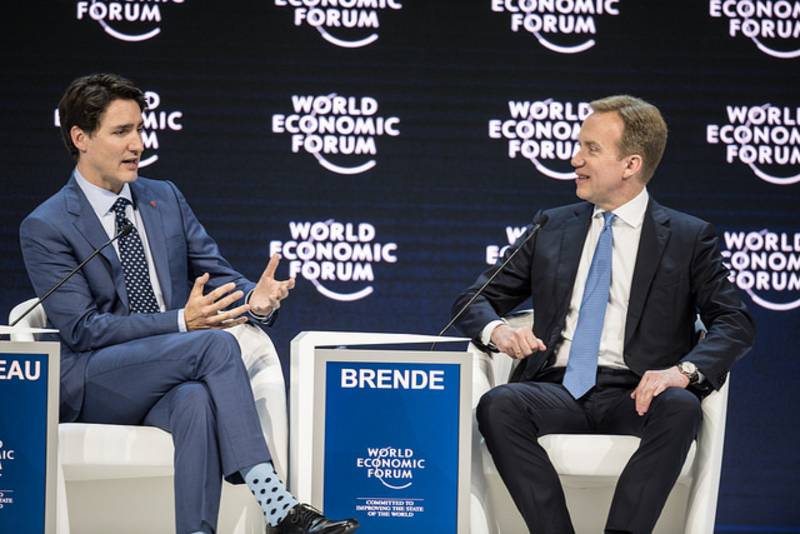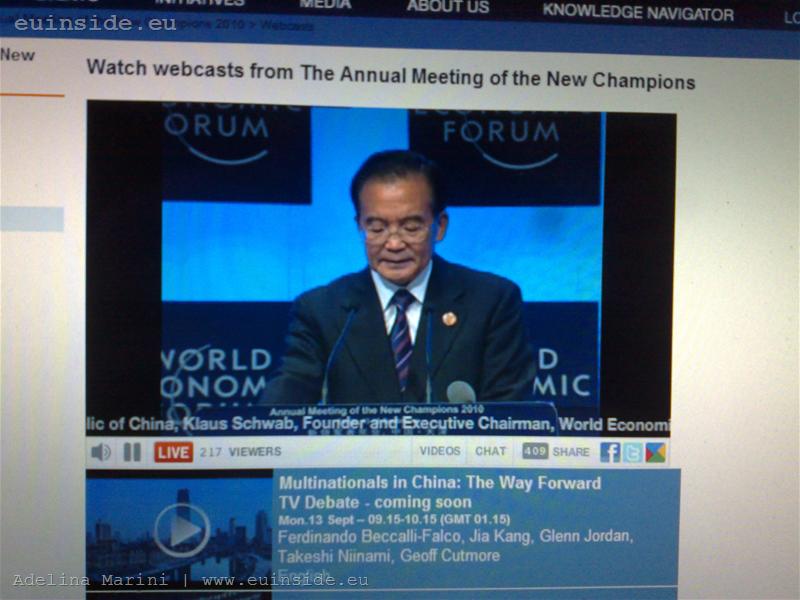Bulgaria has an economy of the "rural type"
Adelina Marini, September 22, 2010
 Last week Deputy PM and Minister of Finance Simeon Dyankov took part in the summer Davos in the Chinese city of Tianjin. In spite of the certain dose of conspiracy on behalf of the Ministry of Finance, thanks to the new technologies we could see and listen to what Dyankov said as a participant in the panel "Doing Business on the Next Frontier". There were moments when he was visibly split between the roles of a finance minister and economic expert, but he presented an interesting thesis - about the advantages of the so called frontier markets.
Last week Deputy PM and Minister of Finance Simeon Dyankov took part in the summer Davos in the Chinese city of Tianjin. In spite of the certain dose of conspiracy on behalf of the Ministry of Finance, thanks to the new technologies we could see and listen to what Dyankov said as a participant in the panel "Doing Business on the Next Frontier". There were moments when he was visibly split between the roles of a finance minister and economic expert, but he presented an interesting thesis - about the advantages of the so called frontier markets.
Without saying it explicitly, from his explanations and examples it became clear that Bulgaria can also be defined as a frontier market in terms of a market that is potentially interesting for investors. Another reason for us to be "at the frontier" is that as a former socialist country we sustain good relations with the most emblematic emerging markets like India, China and Russia, while in the meantime we are an entry point to the EU market. According to Dyankov, most attractive for investors, however, are low taxes and good infrastructure (roads, electric and telecommunication infrastructure, sanitary).
The latter provoked us even more to ask ourselves what does our country offer to potential investors in its capacity of a "frontier market". This is why we decided to ask leading liberal economists whether they share the Deputy PM's (and economist's)thesis and how can Bulgaria benefit from its attachment to the group of frontier markets. The senior economist from the Open Society Institute Gheorghi Anghelov commented concisely that investment banks very much like giving such names to countries because they would sound good to investors.
"For example the term "third world countries", which sounds badly, was replaced  by developing countries - or emerging markets. Almost the same method is applied to frontier countries (countries at the frontier), which most often are small countries, with small stock markets. By markets it is meant most of all stock markets", the economist said for euinside. Mr Anghelov added that in the European Union the following countries are defined as frontier - Bulgaria, Estonia, Romania, Slovakia and Slovenia.
by developing countries - or emerging markets. Almost the same method is applied to frontier countries (countries at the frontier), which most often are small countries, with small stock markets. By markets it is meant most of all stock markets", the economist said for euinside. Mr Anghelov added that in the European Union the following countries are defined as frontier - Bulgaria, Estonia, Romania, Slovakia and Slovenia.
The explanation of the managing associate of Industry Watch Gheorghi Stoev also shows that this is more or less a word game. He said that the most interesting distinction globally is of such markets where outsourcing has its traditions and great dimensions like India, China, Brazil and parts of Eastern Europe (for example Poland or Romania), because they are big and we are used to call them emerging. "As far as I get the meaning, the word frontier is aimed at bringing to the emerging those markets which are so small and hopeless for individual development, but this would in a way incorporate them to the wave of fast development".
What kind of economy is Bulgaria?
 Ultimately, Gheorghi Stoev says, it doesn't matter how Bulgaria would be defined precisely as a market because it remains small and is attractive for retailers who come to the country, open shops and hope to make money. But in terms of industrial attractiveness Bulgaria is not interesting, he added. Gheorghi Stoev is close to Dyankov's opinion, expressed at the Tianjin's forum, that in fact investors are more interested in taxation environment, resources - like land, labour, access to energy resources, etc.
Ultimately, Gheorghi Stoev says, it doesn't matter how Bulgaria would be defined precisely as a market because it remains small and is attractive for retailers who come to the country, open shops and hope to make money. But in terms of industrial attractiveness Bulgaria is not interesting, he added. Gheorghi Stoev is close to Dyankov's opinion, expressed at the Tianjin's forum, that in fact investors are more interested in taxation environment, resources - like land, labour, access to energy resources, etc.
Because the painful truth, as Gheorghi Stoev also noted, is that if there are any factories in Bulgaria it is not because the Bulgarians want them to exist. "For example this is not like with beautiful Italian shoes, which are beautiful because the Italians like good shoes, or the Italian ice cream. It is so much more delicious than any other ice cream, no matter if you are in America, Denmark or in Sofia. It is always more delicious and this is just a product of local demand and requirement for more quality products".
The economist recalled a statement of his from 5 years ago - such thing as a Bulgarian economy does not exist. A thesis, confirmed recently by Prime Minister Boyko Borissov himself in a TV interview. The recipe for this to change, according to Gheorghi Stoev, is not in the development of another government strategy but in "facilitating people on an individual level to make decisions for themselves".
And here we get to the fundamental problem of Bulgarian society - the refusal of making decisions. The problem is not, as it often comes out, that we have no choice. The problem is that there is a lack of will for an individual decision of citizens and as far as it sometimes reveals itself, it is quickly being choked by the state. There is also a lack of information for an informative choice.
Bulgaria is too far from London, Singapore, Frankfurt. "Simply Sofia is the village of the world", the economist commented. "I think that it is a tradition for Bulgarian politicians to be passive, more reacting than setting up the tone of the debate and the speed of what is happening around the world". Bulgarian politicians rarely visit the big economic forums around the world where they could inform themselves of the world economic trends, about the wishes of investors, about supply and demand. The same way, Bulgarian businesses are not present at the big fairs in order to see where they are.
In defiance to the metaphor about the world as being "a big village", where information, technologies and business spread without restrictions, Bulgaria still is a village in the traditional, patriarchal sense of the word - a place, constricted from the world, underdeveloped and doomed to remain such because of the firm refusal of its inhabitants to change their views and mentality.
Therefore, the definition frontier market in the Bulgarian context sounds more like "a market at the frontier of what is possible".
 Justine Trudeau | © WEF
Justine Trudeau | © WEF | © euinside
| © euinside | © WEF Davos
| © WEF Davos